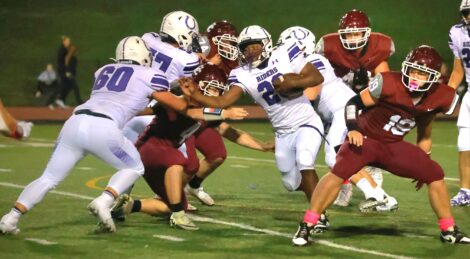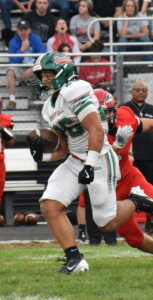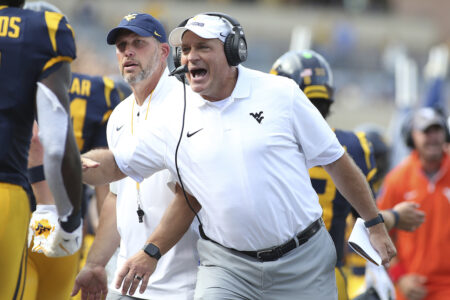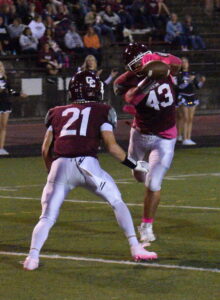The Death Of Cinderella Teams In March Madness
MORGANTOWN – Week 1 of the NCAA’s men’s annual basketball championship, known as March Madness, is over and has proven once again that it can survive quite nicely without the presence of West Virginia in its field … whether the Mountaineers deserved to be in it or not.
That is not to say that the tournament has been without merit, for it showed exactly how strong the consolidation of power in those called the Power Four conferences has been in collegiate sports.
While the thrills of March Madness have been no less, the aura that casts over the world of sports has been diminished with the death of Cinderella across our land.
As they head into the Sweet 16, the princess is nowhere to be found, not even slivers of glass that once made up her slippers.
For the first time, the Sweet 16 has no mysterious outsider stealing its thunder; no Sister Jean from Loyola in Chicago to offer a prayer for the underdogs of the world; no Pete Carril and his Princeton offense; no Larry Bird vs. Magic Johnson vs. showdown; no 16th seed UMBC stunning No. 1 Virginia.
Never before had the Sweet 16 been made up of teams from only the Power Four conferences — the Big 12, the ACC, the SEC and the Big Ten while the SEC, now acknowledged as not only the best football conference but the best basketball conference in America as it sent forward seven of those 16 teams.
Wiped clean from the field over the weekend were McNeese State, St. John’s, Drake, Creighton, Gonzaga, UConn, St. Mary’s, Colorado State and New Mexico.
The mid-majors were demolished, but as they fell one by one their best coaches were gobbled up by the Power Four conference’s teams who fired their coaches when they could not keep up.
Which is where we in West Virginia come back into the picture, for the Mountaineers are in the market to hire a new coach, but so many of those who were named as potential candidates have been gobbled up. The likes of Drake’s Ben McCollum to Iowa, Colorado State’s Niko Medved to Minnesota, Xavier’s Sean Miller to Texas, McNeese State’s Will Wade to North Carolina State.
All of this makes it obvious that this hire by WVU Athletic Director Wren Baker is more than just hiring a basketball coach but he is hiring someone who can prove that the Mountaineers can still be a powerful national factor in college athletics.
When Darian DeVries exited stage left for Indiana, it magnified the significance of the snub his team received from the NCAA selection committee. Whether politics and personal economics involved the committee’s chair, or whether the North Carolina AD Bubba Cunningham played a role in it doesn’t really matter.
The truth is for the fifth straight year the Mountaineers failed to win 20 games, that they were no better than a .500 team in the Big 12 and have made the NCAA field only twice in the last six tournaments and have won only one NCAA Tournament game since 2018, that being over Morehead State.
WVU had hardly been a power in either football or basketball since joining the Big 12 in 2012 and, in recent years, they have made little impact on the league at all.
The football team is 58-58 in Big 12 games since joining the conference and while once known as a dangerous opponent for ranked teams, the Mountaineer football team has not beaten a Top 10 team since Oct. 18, 2014, when it beat Baylor and is 1-15 against Top 10 teams since joining the conference.
Basketball has gone 63-68 over the last four years.
Baker has maintained that the WVU men’s basketball coaching job is still “a great basketball job.”
“I mean a really, really strong program,” he said. “(We have) a tremendous tradition and we’ve done it with multiple coaches over the years.”
The problem is the landscape has changed and you now see coaches and players entering and exiting through revolving doors with far less regard for which program they are playing in but more for how much NIL and revenue sharing money they are getting.
That’s why his women’s basketball team has had three coaches in the last three years and why DeVries would leave after one promising season, making the decision, it seemed, sometime during the year when Indiana’s interest in hiring him emerged.
The most likely replacement would be Jerrod Calhoun, who once led Fairmont State to a national championship game, who studied under Huggins, who turned around a terrible Youngstown State program and in his first year at Utah State this season earned an at-large bid to the NCAA.
But he is no lock and Baker has other options, even Huggins, who came back into the picture when Rich Rodriguez was forgiven for his football exit 17 years ago and hired back.
There is also a viable candidate on the DeVries staff in assistant Chester Frazier, who seems ready to take on his own team and who would be able to provide stability with returning players. But it may be too late for that to matter as the team’s two freshmen — Jonathan Powell and KJ Tenner – have entered the transfer portal and the DeVries recruits have decommitted.
Other popular names in the media involve Bryce Drew of Grand Canyon, who previously coached at Valparaiso and Vanderbilt, and Ross Hodge of North Texas, where Baker was once the athletic director and who worked on staff with Grant McCasland at North Texas.
Wake Forest coach Steve Forbes, a 60-year-old veteran coach, was added to the mix on Monday by 247Sports’ Mike Casazza, indicating the search is not only ongoing but widening in scope.
Forbes is 92-65 at Wake Forests and 50-48 in ACC play despite going 6-16 and 3-15 in his first season.
Time is important, yes, but more important is that Baker does not hire anything less than the right man who is capable of picking up where DeVries left off rather than starting over in a really tough basketball league.





